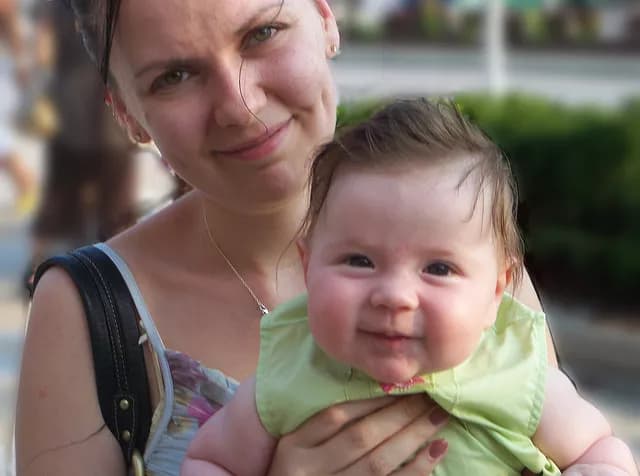
Fever During Labor May Present Risk To Mother
Intrapartum fever -- fever that occurs during labor -- occurs in approximately 1-2% of deliveries and is often associated with maternal and neonatal complications. But the precise reasons for the fever and its different outcomes are unclear.
A new Tel Aviv University study finds a link between the duration of intrapartum fever and maternal complications; and, when intrauterine infection is a trigger for the fever, a link between the fever and subsequent neonatal complications.
The study was led by Dr. Liran Hiersch, of TAU's Sackler School of Medicine and Tel Aviv Medical Center, together with Dr. Eran Ashwal, also of Sackler and Tel Aviv Medical Center. It was published recently in the Journal of Maternal-Fetal and Neonatal Medicine.
A new link between fever and infection
"We set out to explore which specific maternal and neonatal complications are associated with intrapartum fever. More specifically, we were interested to learn if the presence of abnormal bacterial cultures affected the duration of the fever. This would indicate that the fever is probably due to intrauterine infection, affecting the risk of complications in the mother," Dr. Hiersch says.
The research is a retrospective study of 309 women admitted for vaginal delivery at full term to Rabin Medical Center in Israel. The perinatal outcomes of the deliveries complicated by intrapartum fever (body temperature equal to or greater than 100.4°F/38.0°C) were compared to those of 618 women who delivered without intrapartum fever.
The researchers assessed maternal complications according to the incidence of cesarean sections (CS), operative vaginal deliveries (OVD), retained placentas or post-partum hemorrhages.
"We found that women with intrapartum fever had higher rates of operative vaginal deliveries (34.3% versus 19.6%) and cesarean sections (20.7% versus 8.7%)," Dr. Hiersch says. "The fever duration was related to maternal complications, specifically to a higher incidence of cesarean sections. And when we looked for the existence of maternal bacteremia in the same women, positive placental cultures were found to be risk factors for neonatal complications compared to those with negative cultures (23.3 % versus 9.8%).
"The duration of fever during labor adversely affected the risk for complications. This hadn't been reported previously," Dr. Hiersch continues. "But it's important to note that the duration of fever did not affect the risk of complications to the newborn, but only to the mother -- leading to a caesarean delivery or vacuum extraction, for example.
"Professionals can reassure expectant mothers that although a high fever detected during labor is a risk factor for complications, we don't have to rush for an immediate caesarean section. Even if labor time is being prolonged, this extra 'labor time' does not adversely affect the fetus."
Since cases of positive bacterial cultures were at even increased risk for neonatal complications, it would be very important to obtain blood and placental cultures and inform the neonatologists regarding the results of the cultures in order to optimize neonatal care, says Dr. Hiersch. "Even so, most infants were free of complications even in cases of intrapartum fever. With proper monitoring after birth, most adverse outcomes can be overcome."
Materials provided by American Friends of Tel Aviv University. Note: Content may be edited for style and length.
Disclaimer: DoveMed is not responsible for the accuracy of the adapted version of news releases posted to DoveMed by contributing universities and institutions.
References:
Eran Ashwal, Lina Salman, Yossi Tzur, Amir Aviram, Tali Ben-Mayor Bashi, Yariv Yogev, Liran Hiersch. (2017). Intrapartum fever and the risk for perinatal complications – the effect of fever duration and positive cultures. The Journal of Maternal-Fetal & Neonatal Medicine. 1 DOI: 10.1080/14767058.2017.1317740
Related Articles
Test Your Knowledge
Asked by users
Related Centers
Related Specialties
Related Physicians
Related Procedures
Related Resources
Join DoveHubs
and connect with fellow professionals

0 Comments
Please log in to post a comment.